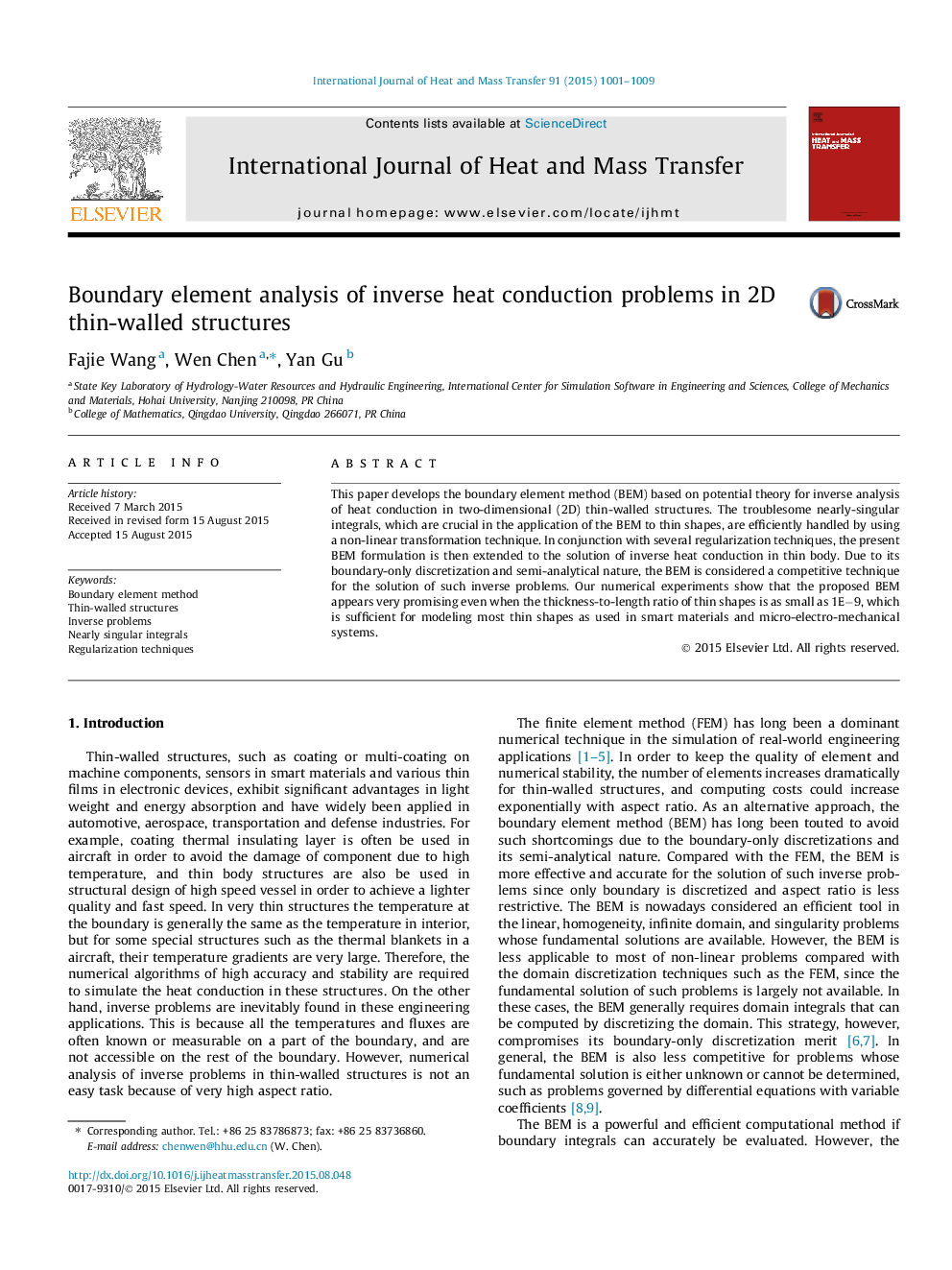| Article ID | Journal | Published Year | Pages | File Type |
|---|---|---|---|---|
| 7056481 | International Journal of Heat and Mass Transfer | 2015 | 9 Pages |
Abstract
This paper develops the boundary element method (BEM) based on potential theory for inverse analysis of heat conduction in two-dimensional (2D) thin-walled structures. The troublesome nearly-singular integrals, which are crucial in the application of the BEM to thin shapes, are efficiently handled by using a non-linear transformation technique. In conjunction with several regularization techniques, the present BEM formulation is then extended to the solution of inverse heat conduction in thin body. Due to its boundary-only discretization and semi-analytical nature, the BEM is considered a competitive technique for the solution of such inverse problems. Our numerical experiments show that the proposed BEM appears very promising even when the thickness-to-length ratio of thin shapes is as small as 1Eâ9, which is sufficient for modeling most thin shapes as used in smart materials and micro-electro-mechanical systems.
Keywords
Related Topics
Physical Sciences and Engineering
Chemical Engineering
Fluid Flow and Transfer Processes
Authors
Fajie Wang, Wen Chen, Yan Gu,
